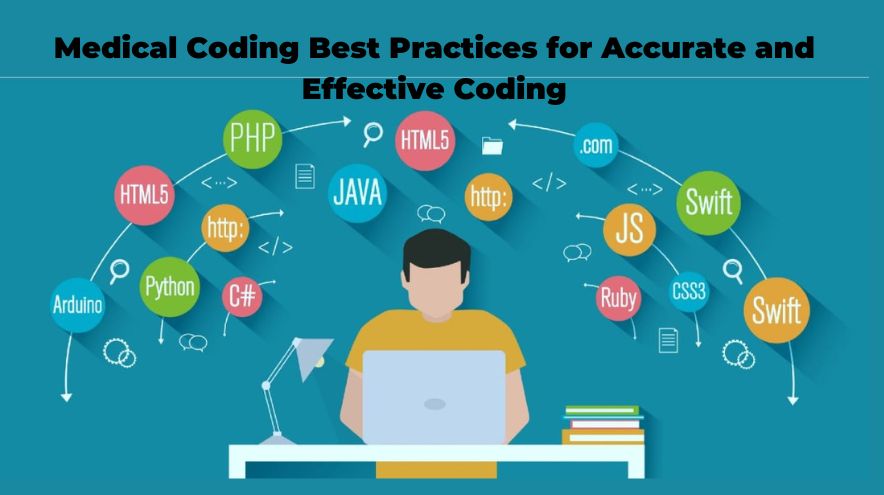Medical coding is a critical component of the healthcare industry, and accuracy is essential. The coding process is complex, and mistakes can have significant consequences, including delayed reimbursement, regulatory penalties, and legal issues. In this article, we will discuss some medical coding best practices that can help ensure accurate and effective coding.

Practices for Accurate and Effective Coding
Here are some practices you should follow for accurate and effective coding:
Standardize Your Coding Process
Standardizing your coding process is essential to ensure consistency and accuracy. Establishing a standardized process for coding will help ensure that all staff members follow the same guidelines and procedures. This will help minimize errors, reduce the time it takes to complete the coding process, and help ensure that your practice is in compliance with all regulations.
Ensure Accurate Documentation
Accurate documentation is critical to accurate coding. Healthcare providers should ensure that they document all relevant information, including patient symptoms, medical history, and any tests or procedures performed. This documentation should be complete, clear, and concise. Additionally, providers should ensure that they document all services and procedures provided and any special circumstances that affect the services provided.
Keep Up-to-Date with Coding Guidelines
Coding guidelines change frequently, and it’s essential to keep up-to-date with these changes to ensure accurate coding. Healthcare providers should subscribe to industry publications, attend seminars and workshops, and maintain ongoing education to stay informed of the latest coding guidelines and best practices.
Use Appropriate Codes
Using appropriate codes is essential to accurate coding. Healthcare providers should ensure that they select the most accurate and specific code that matches the patient’s condition and the services provided. They should also ensure that they use the correct code level and modifiers as necessary.
Verify All Information
Verifying all information is critical to ensure accurate coding. Healthcare providers should review all documentation to ensure that it is complete and accurate. They should also verify that the codes selected match the patient’s condition and the services provided.
Ensure Compliance with Regulations
Compliance with regulations is essential to avoid penalties and legal issues. Healthcare providers should ensure that they comply with all relevant regulations, such as HIPAA, OIG guidelines, and other federal and state regulations.
Ensure Quality Control
Quality control is critical to ensure accurate and effective coding. Healthcare providers should establish a quality control process to ensure that all coding is accurate and complete. This process should include regular audits of coding accuracy and compliance with regulations.
Summary
In conclusion, medical coding is an essential component of the healthcare industry, and accuracy is critical. By following these best practices, healthcare providers can ensure accurate and effective coding, reduce errors, and avoid penalties and legal issues. Standardizing your coding process, ensuring accurate documentation, keeping up-to-date with coding guidelines, using appropriate codes, verifying all information, ensuring compliance with regulations, and ensuring quality control are all critical components of medical coding best practices.

Recent Comments